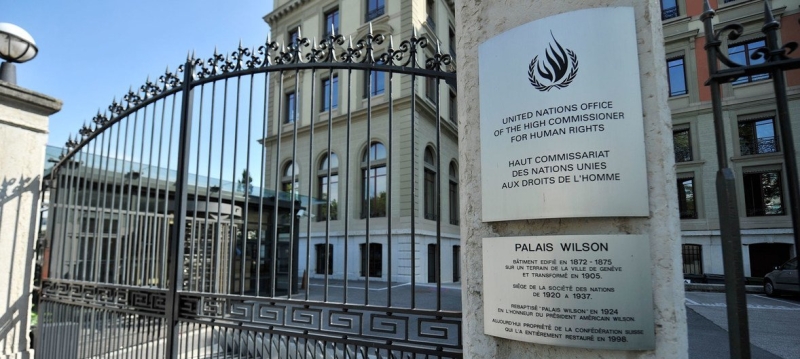
Office of the United Nations High Commissioner for Human Rights, Geneva. Repression for UN Cooperation Intensifies Around the World Human Rights
Violations of fundamental rights and freedoms around the world, coupled with restrictive legal frameworks and increased surveillance, continue to shrink the space for civil society and heighten people’s fear of reprisals, according to a UN report released today.
“Complex global challenges to peace and security, development and human rights affect how individuals and groups engage with the United Nations, and even the extent to which they do so,” said Assistant Secretary-General for Human Rights Ilze Brands Kehris, presenting the annual report on intimidation and reprisals for cooperating with the UN.
More cases and countries than ever before could not be included in this year’s edition, she said, due to serious concerns about the safety of victims.
Repression and persecution
“At least 32 individuals, including women and young people, from six Member States could not be included in this report at the request of victims who feared that they could still be identified even if their allegations were transmitted anonymously, and because of the severity of reprisals they feared. For this reason, four Member States could not be listed in the report, although the information related to them was confirmed,” the UN assistant chief said.
Read also:
UN High Commissioner: Human Rights Are Our Pillar in the Fight Against Unrestricted Power
“The serious acts of repression, human rights violations and abuses documented in this report include abductions or enforced disappearances, arbitrary arrests and detentions, torture and ill-treatment, and even murder,” Brands Kehris said.
“Human rights defenders, activists, journalists, lawyers and trade unionists, as well as victims of human rights violations, witnesses and their relatives, continue to make up the vast majority of those targeted for their actual or, in some cases, perceived cooperation with the UN,” she explained.
The Assistant Secretary-General said that women, indigenous peoples and youth face particular and often higher risks of reprisals when they engage with the UN. For the first time, the report documented allegations of repression against young people, which affected at least 20 people.
Self-censorship
Self-censorship remains widespread, and the report documents more cases of anonymous dissemination of information than previous editions.
“In fact, the complexity of the various forms of self-censorship requires, alongside awareness and understanding of the nuances, increasingly sophisticated methodological approaches and tools for monitoring and reporting on it,” Brands Kehris stressed.
State Responsibility
Some 45 per cent of Member States included in the report continued to apply laws and regulations relating to civil society, counter-terrorism and national security that constrained or hindered cooperation with the United Nations.
“To fulfil its mandate to maintain international peace and security, the UN needs the cooperation of the communities it serves and relies on. Local populations and civil society actors can offer vital responses. Listening to them and engaging with them is essential for the UN. “Member States have the primary responsibility to ensure that such activities can take place safely and freely,” Brands Kehris said.
Russian Federation
According to the report, independent UN experts examined allegations that the NGO Man and the Law was forcibly dissolved in Russia on the basis of an administrative court decision, which cited the organization’s consultative status with the UN as one of the reasons.
In addition, it is alleged that the inclusion of the Human Rights House Foundation in the list of organizations engaged in so-called undesirable activities in 2023 was due to its interaction with the United Nations.
The authors of the report also report that the Human Rights Council expressed concern that the Russian authorities are resorting to legislative measures against Russian civil society to criminalize cooperation with international organizations, including UN human rights mechanisms.
Belarus
The report also provides an update on imprisoned trade unionist Aleksandr Yaroshchuk in Belarus and the situation of the NGO Viasna Human Rights Center
Turkmenistan
The cases examined include the denial of exit from Turkmenistan to photojournalist and human rights activist Gurban Soltan Achilova, who was unable to travel to Geneva to, among other things, meet with representatives of the Office of the High Commissioner for Human Rights (OHCHR).
